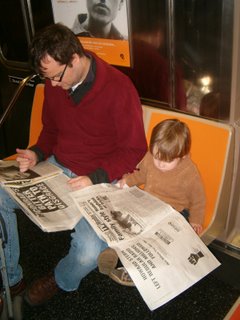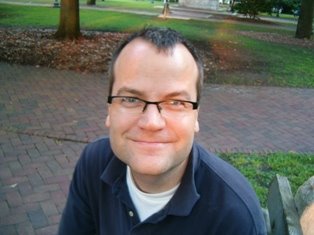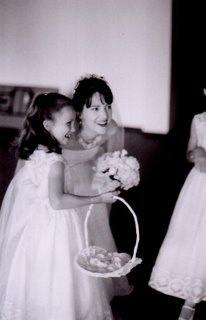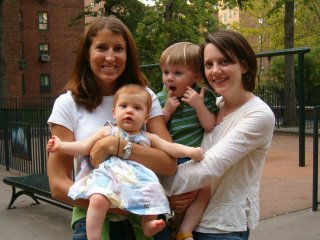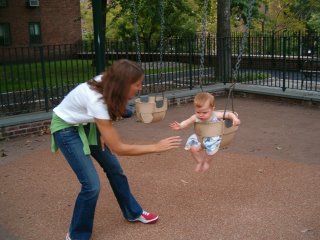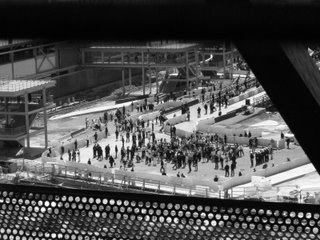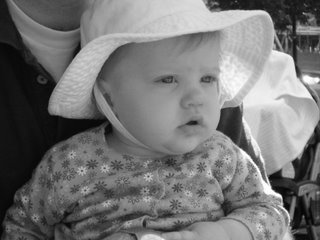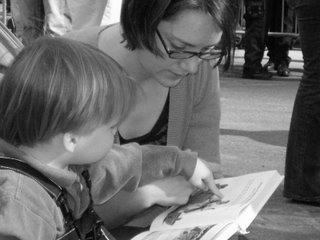
(Pic: 'A displaced father holds his ill son at a clinic in Tawila, North Darfur'. It is a difficult picture to post. But it may help to provide some gravitas in capturing something of what the father in our story may have felt.)
Reflection #2 on Mark 9:14-29Read the introduction:
HERE.
Questions, comments, helpful critiques are welcome.
I have three reflections from Mark 9:1.
Jesus enters our lives as they really are.
2. Jesus powerfully speaks to our terrors and pains.
3. Jesus tenderly addresses our faithful doubts.
2. Jesus powerfully speaks to our terrors and pains.Jesus comes down from the mountain and finds a crowd arguing. What are they arguing about?
(V17) Someone from the crowd speaks up. We find out that this man’s
only son has been literally gripped with terror. His household has been seized by this torment for years. This man has come, in faith, to Jesus. This would have been OK... except that he couldn’t find Jesus because Jesus was being transfigured up the high mountain. And his disciples (v18) don’t seem to be much help.
V17-18 tells us about the son’s terror. He has been attacked and overpowered by an unclean spirit in such a way that his whole body was seized (V18). A spirit has taken residence since he was a boy (V21). And the unclean spirit seeks his -- and his families -- total destruction. (V22)
Let me say this: I have never seen demon possession manifested the way that they are in the Gospels. I know some who tell me that they have. I do believe this account to be completely accurate.
However, I also want to say that even though I haven’t experienced or seen the terror of this kind of demon possession, I know that demon possession in the Bible represents something bigger than demon possession in itself.
An unclean spirit represents at least two things: First, it represents the kind of evil and pain and terror that exists in this broken world. (As with this boy, so with the world).
Second, it represents being unacceptable and untouchable. The spirit is described as ‘unclean’ (as they almost always are in the New Testament). That is, the boy is unacceptable. Untouchable. Unwanted, in that world, by both by God and by society.
So while I have not seen manifest demon possession like this, I do know -- you know -- you may know right now -- the stranglehold of pain -- suffering -- and terror in your world and the deep and painful knowledge that one is unacceptable and untouchable to God.
You may feel the stranglehold of suffering for yourself. Or like this father, you may feel it for a son or a daughter who is bearing something that you feel is too difficult for them right now. Or you may feel the weight of terror and evil in our world. I feel it whenever I read about genocide in the
Darfur Region of the Sudan.
It is funny that we struggle to believe in demon possession in a world in which genocide can exist. I find that short sighted. Yes?
What does Jesus do?Jesus speaks to the terror. He rebukes the unclean Spirit. (V25):
“Come out and never enter him again.”
Jesus is giving a 'Kingdom snapshot' here. Jesus came to deal with terror and evil and suffering. And the unclean spirit leaves the boy with convulsion. But then in V26, the text becomes all deliberate. The text slows up here.
The boy was ‘like a corpse’, so that most of them said: “He is dead.”
We are being given a glimpse, as it were, of death...
It looks bad. But Jesus (V27) then touches the untouchable, the unclean, the dead boy. And in his touch, he ‘lifts him up’ -- the original word is he ‘raised him up’. The implication is that the boy is being raised from the (apparent) dead -- and the boy had ‘the power to stand’.
Here is a glimpse of
resurrection.... resurrection beyond death.
We won’t go into it now. But I think that what’s being alluded to by Mark is this: Jesus speaks to the unclean Spirit to get out. That’s Jesus’ mission: to restore a broken and terror filled world; to tell evil to ‘take a hike’.
But what will this victory look like? How will it be secured?
It will look bad for a time, but then there’ll be a lifting up: a Resurrection. Jesus is saying: It’s by death that evil is dealt with. And by the work of Resurrection we have ‘the power to stand’ free from that evil.
And we therefore need to be patient while we witness evil and terror. Christ’s death has secured evil’s departure and Christ’s Resurrection assures us of its eventual removal.But in the meantime, we choose faith.
What will that faith look like?Tomorrow...
Love, Justin.
 A word to my brothers and sisters at Christchurch St Ives in Sydney: You are blessed (in so many ways). Here is one:
A word to my brothers and sisters at Christchurch St Ives in Sydney: You are blessed (in so many ways). Here is one:
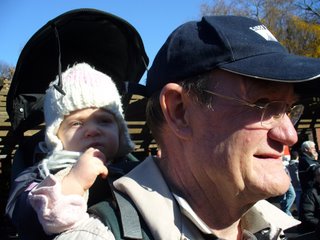
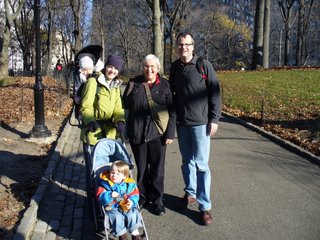



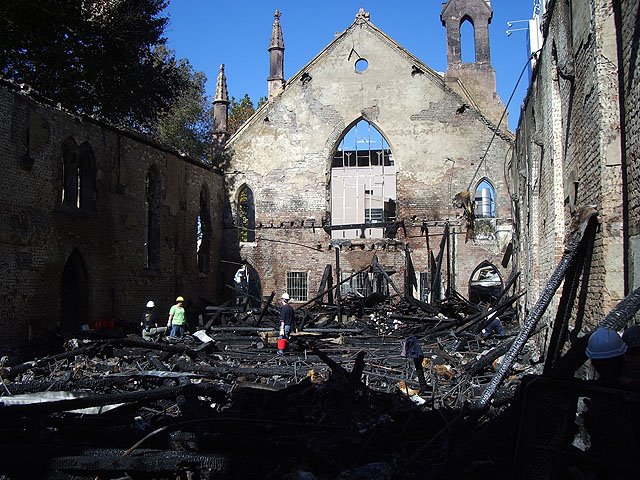








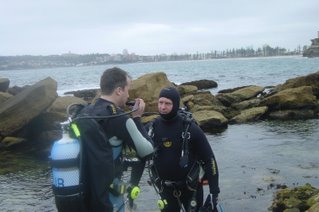




 birthday cake...
birthday cake...  and present...
and present... The Girl was quite taken with her birthday cake at first, but then returned to her first love...the bagel.
The Girl was quite taken with her birthday cake at first, but then returned to her first love...the bagel. 


